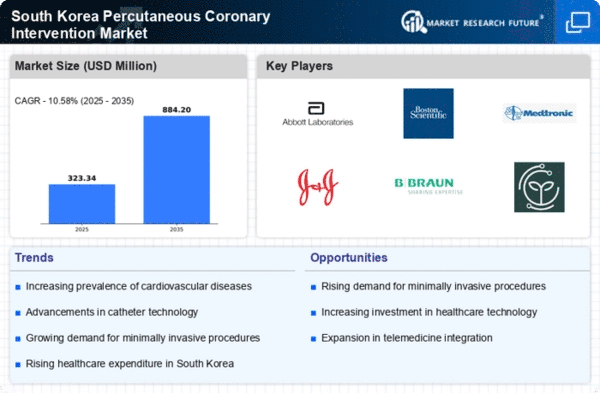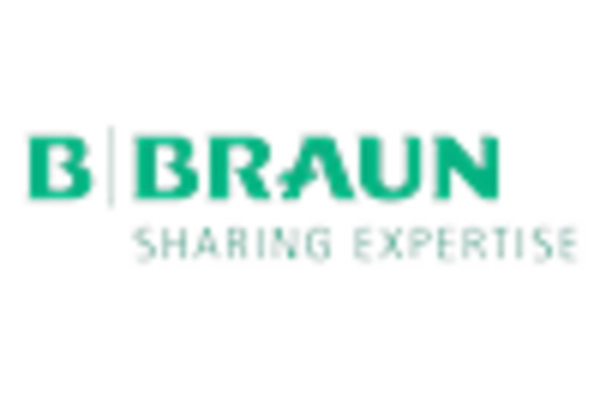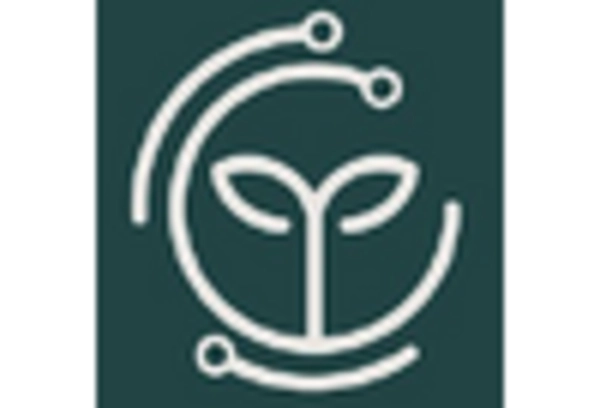Rising Aging Population
The aging population in South Korea is a critical driver for the percutaneous coronary-intervention market. As individuals age, the incidence of cardiovascular diseases tends to increase, leading to a higher demand for interventional procedures. According to recent statistics, approximately 15% of the South Korean population is aged 65 and older, a figure projected to rise significantly in the coming years. This demographic shift necessitates advanced medical interventions, including percutaneous coronary interventions, to manage age-related cardiovascular conditions. The healthcare system is adapting to this trend by enhancing facilities and training healthcare professionals, thereby fostering growth in the percutaneous coronary-intervention market. Furthermore, the increasing life expectancy in South Korea, which stands at around 83 years, further emphasizes the need for effective cardiovascular treatments, positioning the market for substantial expansion.
Innovative Medical Devices
The introduction of innovative medical devices is reshaping the landscape of the percutaneous coronary-intervention market. Recent advancements in catheter technology, stent design, and imaging techniques have significantly improved procedural outcomes. For instance, bioresorbable stents and drug-eluting balloons are gaining traction, offering enhanced safety and efficacy. The South Korean market has witnessed a surge in the adoption of these cutting-edge devices, with a reported growth rate of 10% in the last year alone. This trend is likely to continue as healthcare providers seek to improve patient outcomes and reduce complications associated with traditional interventions. Additionally, the integration of digital health technologies, such as telemedicine and remote monitoring, is expected to further enhance the efficiency of percutaneous coronary interventions, making them more accessible to patients across the country.
Increased Healthcare Expenditure
The rising healthcare expenditure in South Korea is a significant driver for the percutaneous coronary-intervention market. The government has been investing heavily in healthcare infrastructure and services, with healthcare spending reaching approximately 8.1% of GDP in recent years. This investment has led to improved access to advanced medical technologies and treatments, including percutaneous coronary interventions. As hospitals and clinics upgrade their facilities and acquire state-of-the-art equipment, the demand for these procedures is likely to increase. Furthermore, the South Korean government has implemented various health policies aimed at promoting preventive care and early intervention, which could lead to a higher volume of patients seeking percutaneous coronary interventions. This trend suggests a robust growth trajectory for the market, driven by both public and private sector investments.
Supportive Regulatory Environment
The supportive regulatory environment in South Korea plays a crucial role in facilitating the growth of the percutaneous coronary-intervention market. The government has established streamlined processes for the approval of new medical devices and technologies, which encourages innovation and market entry. Regulatory bodies are actively working to ensure that new interventions meet safety and efficacy standards, thereby fostering confidence among healthcare providers and patients alike. Recent initiatives aimed at expediting the approval process for life-saving devices have resulted in a quicker introduction of advanced percutaneous coronary-intervention technologies to the market. This proactive approach not only enhances patient access to cutting-edge treatments but also stimulates competition among manufacturers, potentially leading to lower costs and improved options for healthcare providers. As a result, the regulatory landscape is likely to continue supporting the expansion of the percutaneous coronary-intervention market.
Growing Awareness of Cardiovascular Health
There is a notable increase in public awareness regarding cardiovascular health in South Korea, which serves as a vital driver for the percutaneous coronary-intervention market. Educational campaigns and health initiatives have been instrumental in informing the population about the risks associated with cardiovascular diseases and the importance of early detection and treatment. As a result, more individuals are seeking medical advice and intervention at earlier stages of their conditions. This heightened awareness is reflected in the rising number of diagnostic procedures and subsequent interventions, including percutaneous coronary interventions. Moreover, the collaboration between healthcare providers and community organizations to promote heart health is likely to sustain this trend, further propelling the market forward. The emphasis on preventive care and lifestyle modifications is expected to complement the demand for interventional procedures.
















